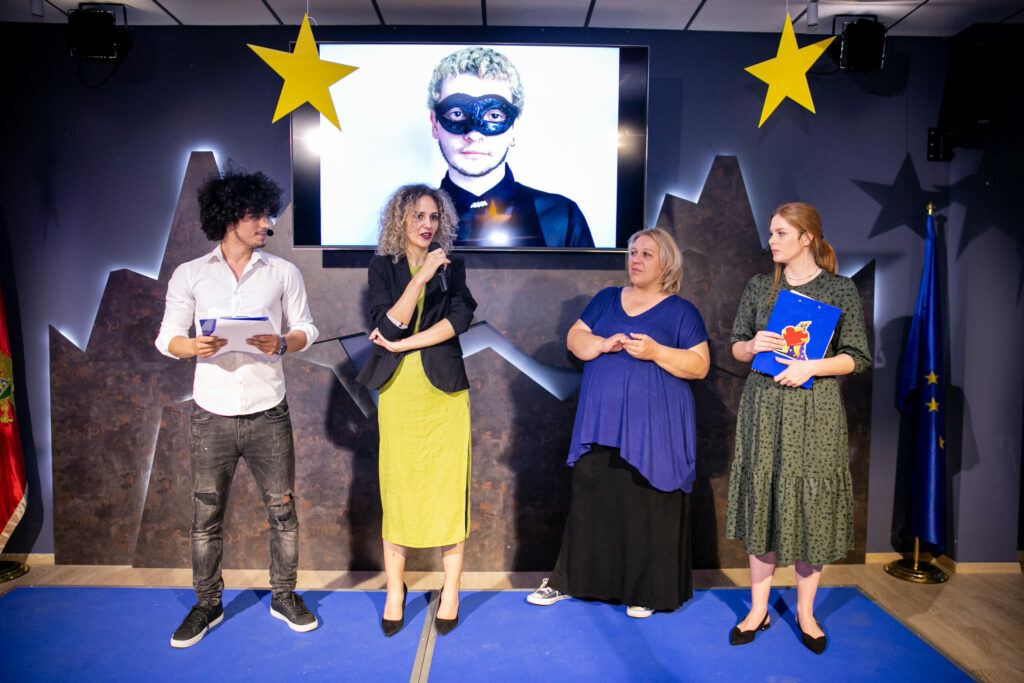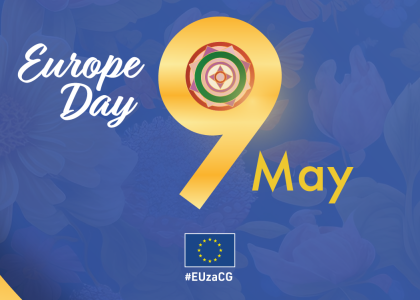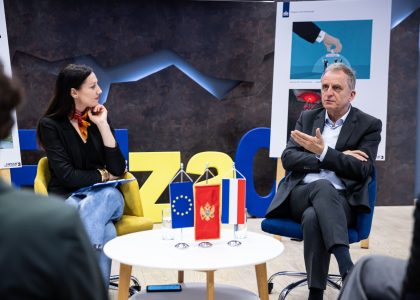Europe House and Queer Montenegro celebrate Pride Month
An evening dedicated to queer art, titled “Queering, it happened,” was organised at Europe House to commemorate Pride Month.
What does queer activism art in Montenegro look like? Do you know who wrote the first lesbian novel in Montenegro? Europe House and the LGBTIQ association Queer Montenegro have the answers to these questions.
“As art becomes a new space for promoting human rights, we decided to organise this exciting artistic queer journey through photography, literature, theatre, film, and music. Because culture and art are the best ways to combat prejudices and stereotypes,” emphasised Manja Babić from Europe House.
Non-governmental organisations played an important role in shaping the queer cultural and social reality in Montenegro.
Miloš Knežević, Executive Director of the LGBTIQ association Queer Montenegro, highlighted the significance of art.
“Art is a powerful tool for changing the world. It has the power to bridge social divisions, open new perspectives, and awaken empathy within us. This event provides the opportunity to understand and appreciate the different forms of beauty. Through art, we can change the way we see ourselves and others,” said Knežević.
The aim is to support artists from the queer community in expressing their identities, dreams, and experiences through art.
“Through their works, we want to highlight the beauty and complexity of queer identities and promote understanding, acceptance, and inclusivity,” he concluded.
The exhibition “Our Stories” presents the stories of the transgender, gender variant, and intersex community through different methods and tools, empowering the engaged and alternative art scene.
Attendees had the opportunity to view photographs of transgender and queer individuals who were empowered enough to stand in front of the camera, bearing messages that society often directs at them.
The exhibition, which features the works of over 15 authors, including works created through workshops by the non-governmental organisations ŠkArt and Spektra Association, also includes individual works by artists from the community, the Gender Attack performance, as well as the personal items of those who have gone through the transition process.
The exhibition was created as part of the ŠKARTAONICE project funded by the European Union through the project Responsible and Solidary – Citizens Take Initiative.

The influence of tradition and traditional views on women is reflected in this excerpt from the first lesbian novel published in Montenegro, titled “Behind Closed Doors,” by Kristina Ćetković:
“We claim to live in a country of honour and heroism, yet we refuse to see the truth – that we live in a country with great injustice towards half of its population. No one is happy when we are born: not grandfathers, fathers, husbands, or brothers… But neither are mothers and grandmothers. They don’t want daughters and granddaughters. Some because they prefer male offspring, and some out of love for female children – so that they wouldn’t suffer in life like them.”

Another important event is the Regional Competition for the Best Queer Story. Therefore, as part of “Queering,” we hosted the editor of the collection of the best queer stories, Katica Maksan, as well as the winner of the competition for the best queer story, Dragana Erjavšek.
The right to personal choice and the conflict surrounding that right are some of the fundamental principles of theatre skills.
One of the first drama texts in Montenegro on queer themes and one of the first theatrical productions was the play “Powdered Milk” by Dragana Tripković and directed by Stevan Bodroža.
“Theatre has always been a powerful instrument for challenging prejudices and questioning the world as we know it. The contribution of art to an inclusive society is not a novelty, and only the intentions contained in artistic works can terminologically change. What is never neglected in theatre is diversity, which is present at almost every level and in every theme of a theatrical work,” emphasised Tripković.

In the excerpt from the play that the audience had the opportunity to watch, the roles were performed by renowned actors Omar Bajramspahić, Pavle Popović, and Marko Todorović. The play was produced by the Alternative Theatre Company ATAK, one of the first NGOs in Montenegro that engages in artistic production through an activist approach.
“It is my belief that every art must be engaged, perhaps precisely because I felt the power of change that society can bring through theatre,” concluded Dragana.

We witnessed the boundaries being pushed through the screening of the film Barley Harvest. Katarina Kastratović, the film’s producer, shared the specifics of the filming experience during the pandemic.
We concluded the journey through queer art with a performance by the DJ duo – Bizzar Duo.








